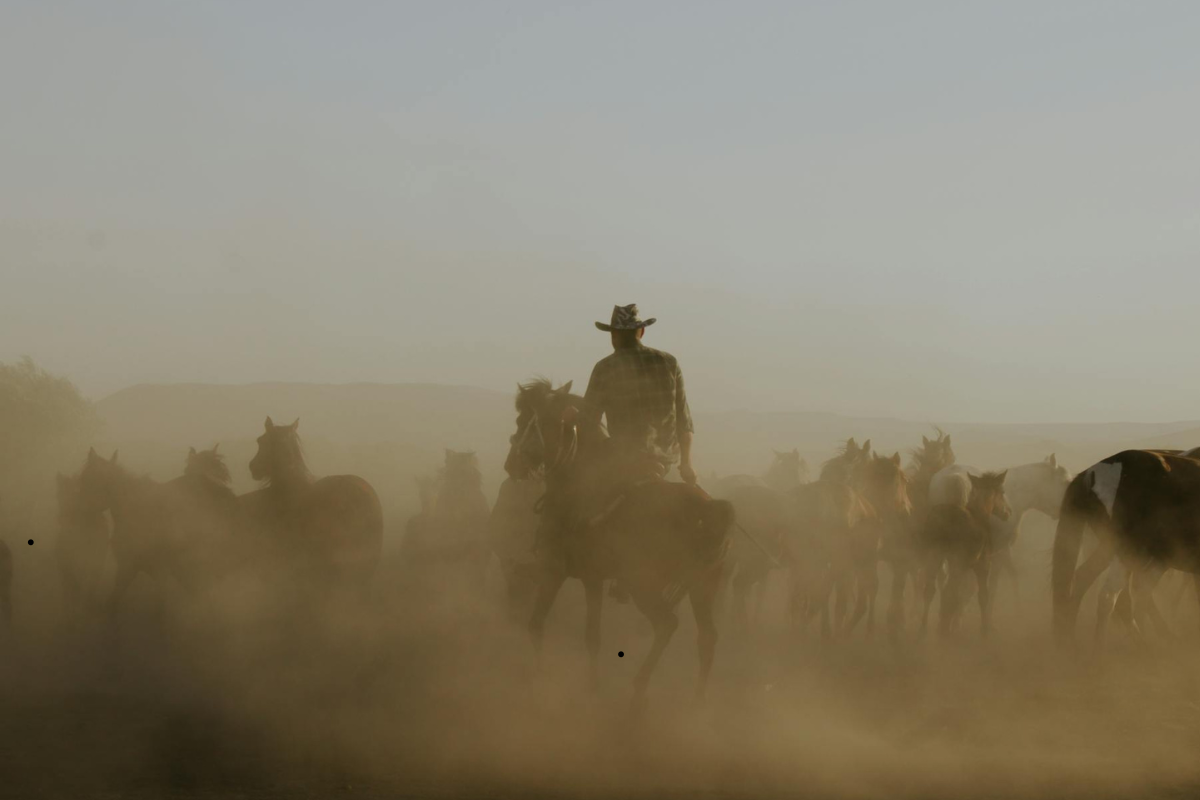Worcester v Georgia (1832)
There are several memorable reactions to Supreme Court rulings. Few express open defiance of the Court as did President Andrew Jackson’s response to Worcester v. Georgia (1832). In refusing to accept the Court’s ruling as final, Jackson (by some accounts) declared, “John Marshall has made his decision, now let him enforce it.”
Case Background
What caused such a visceral reaction to the Court’s ruling? The case involved disputed land—including land that was under consideration in Fletcher v. Peck (1810)—within the borders of Georgia that was designated by treaty as part of the Cherokee Nation. In Fletcher, the Marshall Court struck down a Georgia law that attempted to rectify a corrupt land grant made by the previous state legislature, but it sidestepped the status of Native American land. Advocates of states’ rights viewed the ruling in Fletcher as federal encroachment on state sovereignty. They identified an unwelcome pattern in Marshall Court rulings; the Court tended to side with the national government in its legal disputes with states. Worcester v. Georgia was, in their view, a continuation of the pattern and, perhaps, a political boiling point. What was different, however, in 1832 was a wave of support for states’ rights that included the 1828 election of Andrew Jackson. By the end of his second term in 1837, Jackson appointed six new Justices to the Supreme Court, more than any president besides George Washington and Franklin D. Roosevelt. Jackson’s appointments included Roger Taney, author of the Court’s opinion in Dred Scott v. Sanford (1857), who replaced John Marshall as chief justice on the Court. As Jackson’s influence was rising, Chief Justice Marshall’s was fading. Marshall’s fading influence was less apparent in the Court’s ruling in Worcester v. Georgia and more apparent in Jackson’s and Georgia’s defiant reaction to it.
The legal and political disputes boiled down to a matter of jurisdiction that touched both federalism and the status of Native American territory. By the third decade of the nineteenth century, the tide had turned in the struggle between Native tribes and the United States. As the latter won military victories over the former, Native American tribes were pushed westward or confined by treaty to designated “Indian Territories.” One such territory was in Georgia. It contained the majority of the Cherokee Tribe. The legal and constitutional status of Native American tribes that lived within the boundaries of the U.S. was unclear in part because policy changed with the passing from one presidential administration and Congress to another. In addition, the Supreme Court was unclear about the status of Native American territories in rulings such as Fletcher v. Peck, Johnson v. McIntosh (1823), and Cherokee Nation v. Georgia (1831). Moreover, state and federal policies were often in conflict. While the federal government tended to be more patient and allow Native American tribes to decide when it was time to evacuate native American Territories in the eastern U.S., states were impatient as settlers pushed westward and demanded more land. Economic and population booms increased the pressure to evacuate native American tribes.
Cherokee Nation v. Georgia
Cherokee Nation v. Georgia was a compromise of sorts. Marshall wrote for the Court, arguing that Native American tribes’ constitutional status was unclear, as was their right to sue in American courts. Tribal nations were neither like states nor sovereign nations. Marshall called them “domestic dependent nations.” Consequently, they did not have standing in U.S. courts and, thus, the Supreme Court dismissed the case. There was a silver lining in Marshall’s opinion. In dicta, he claimed that Native American tribes were subject to federal sovereignty, and the treaties reached between the federal government and Native Tribes were valid under the Constitution. The spirit of compromise was less apparent in 1832 when Worcester v. Georgia was decided, and Jackson was gaining political strength and influence.
The Changing Political Landscape
Georgia was particularly aggressive in pushing for removal of Native Americans from its state. An 1802 compromise between Georgia and the federal government was reached when Georgia gave up land to the federal government in exchange for a commitment from the latter to return Native American lands to the state. The evacuation process moved too slowly for Georgia in part because of the discovery of gold in the Cherokee Territory. When Georgia began the process of removal, President John Quincy Adams considered using the U.S. Army to stop Georgia’s removal efforts. When the Creek Tribe agreed to move out of Georgia, freeing more land for expansion and development, a crisis was temporarily averted. The election of Andrew Jackson in 1828 led to changes in federal policy. Jackson denied the existence of sovereign Native American territory, favored an aggressive removal policy, including that created by the Indian Removal Act of 1830 (that he expressed support for in his 1829 message to Congress), and refused to enforce treaties that had been signed by his predecessors. In 1831, Congress considered repealing section 25 of the Judiciary Act of 1789, which gave the Supreme Court jurisdiction in cases appealed from state courts.
The Cherokee Tribe wished to remain within Georgia’s borders. It created a constitution in 1827, establishing a nation. Georgia responded by passing laws that nullified all Native American laws, including the Cherokee Constitution, giving Georgia sovereignty over tribal lands, prohibiting the Cherokee from extracting gold, and authorizing the removal of Native Americans from the state. The Georgia laws also required Whites living in Native American Territory to secure a license with the state of Georgia and to take a loyalty oath to the state. The license requirement was the source of a legal dispute between Georgia and Christian missionaries that gave Marshall the opportunity to bolster the Court’s legal position on Native American policy and to push back on both Jackson’s policies and his efforts to depreciate the Court’s jurisdiction and authority.
Samuel A. Worcester’s Dispute with Georgia
Worcester v. Georgia resulted from a dispute over the governing jurisdiction of Cherokee lands in Georgia that were part of the Cherokee Nation. A missionary, Samuel A. Worcester, who was a citizen of Vermont but resided within the Cherokee territory, failed to secure a license from the State of Georgia that was required by state law for Whites to reside there. Georgia ordered Worcester to leave the state. When he refused, he was arrested, tried, convicted, and sentenced to four years’ hard labor. His attorney, William Wirt, appealed the ruling to the U.S. Supreme Court, arguing that the Georgia laws under which he was convicted were unconstitutional because they violated the Commerce Clause, the Contracts Clause, and federal treaties. When the Supreme Court took the case, Georgia refused to participate in it.
The Supreme Court’s Ruling
The Supreme Court ruled for Worcester. Marshall argued that the Cherokee Tribe was a sovereign power within its nation’s borders and that Georgia law had no effect there. The Georgia laws not only violated the sovereignty of the Cherokee Nation, but they also violated the Commerce Clause, Contracts Clause, and federal treaties as Wirt had argued. The federal government had exclusive, not concurrent power to regulate Native American affairs. Marshall denied that state power to regulate Native American affairs was concurrent when he wrote that the “whole intercourse between the United States and this Nation [the Cherokee Nation], is, by our Constitution and laws, vested in the Government of the United States.” Defining the legal status of the Cherokee Territory as “a sovereign nation” was a change in status from “domestic dependent nations” that the Court used in Cherokee Nation v. Georgia. The new designation gave the Cherokee tribe greater legal status regarding sovereignty. Marshall argued that treaties between the U.S. and the Cherokee Nation “acknowledge their right as a sovereign nation to govern themselves and all persons who have settled within their territories” and that they are “free from any right of legislative interference” by the states. Consequently, the Georgia laws under which Worcester was convicted were unconstitutional. Only Congress had the power to regulate Native American affairs as determined by the Constitution’s Commerce Clause and by treaty, a practice dating back to the Articles of Confederation.
The Aftermath of Worcester v. Georgia
The political and legal turmoil surrounding Worcester v. Georgia subsided after the Court’s ruling. The Court ordered the Georgia court from which the case came to reverse its decision and release Worcester. Enforcement of the decree was not legally possible until the following term and required noncompliance by the state court to justify a Supreme Court order to federal marshals to ensure that Worcester was released. The dispute was resolved when a compromise was reached that allowed Georgia Governor Lumpkin to pardon Worcester in exchange for him agreeing to leave the state. Moreover, Jackson’s attitude toward the federal courts changed as the Nullification Crisis shifted political alliances. Worcester v. Georgia, however, did little to slow the evacuation of the Cherokee and other tribes from Georgia and prevent what became known as the Trail of Tears.
Professor of Political Science at Middle Tennessee State University
Related Essays




